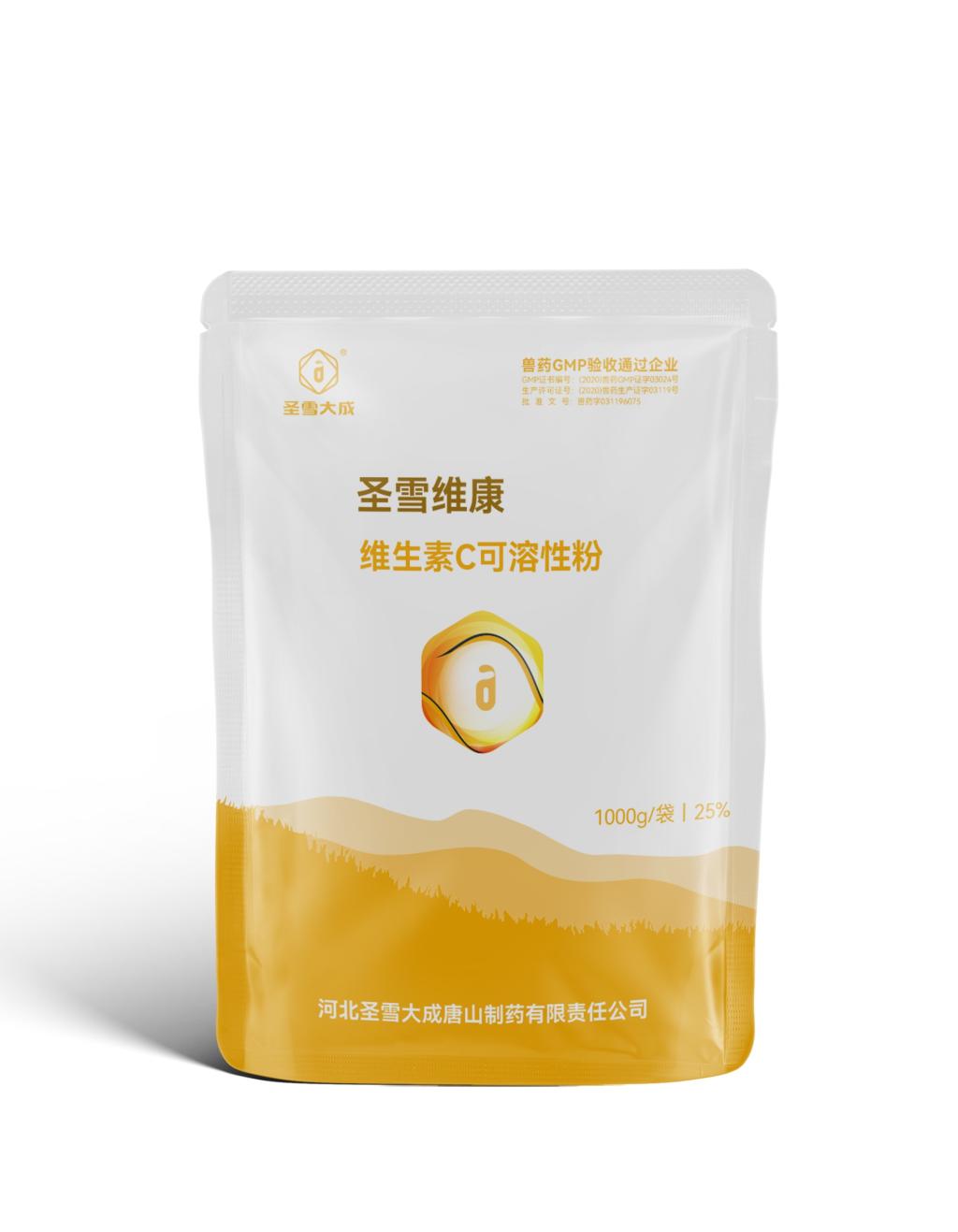Tel:+8618231198596

News
 CONTACT
CONTACT
 CONTACT
CONTACT
- Linkman:Linda Yao
- Tel: +8618231198596
- Email:linda.yao@dcpharma.cn
- Linkman:CHARLES.WANG
- Department:Overseas
- Tel: 0086 0311-85537378 0086 0311-85539701
News
Vitamin C Soluble Powder: Fueling Resilience and Vitality.
TIME:2024-02-18
The Vital Role of Vitamin C:
a. Immune System Support: Vitamin C, also known as ascorbic acid, is a potent antioxidant that plays a crucial role in supporting the immune system. It enhances the production and function of white blood cells, which are essential components of the body's defense against infections and illnesses.
b. Collagen Synthesis: Vitamin C is integral to the synthesis of collagen, a structural protein that contributes to the health of connective tissues, skin, blood vessels, and bones. Adequate collagen production is vital for maintaining the integrity and elasticity of these tissues.
c. Antioxidant Defense: As an antioxidant, Vitamin C helps neutralize free radicals in the body, which are unstable molecules that can cause cellular damage. By combating oxidative stress, Vitamin C contributes to the prevention of various chronic diseases and supports overall health.
The Convenience of Vitamin C Soluble Powder:
a. Rapid Absorption: Vitamin C soluble powder offers the advantage of rapid absorption compared to some traditional supplement forms. Being in a powdered form allows for quicker dissolution in liquid, facilitating efficient absorption in the digestive system.
b. Versatile Applications: The versatility of Vitamin C soluble powder enables its incorporation into various beverages and foods, providing individuals with creative and convenient ways to meet their daily Vitamin C requirements. This adaptability makes it a user-friendly supplement for individuals with diverse lifestyles.
Immune System Resilience:
a. Cold and Flu Prevention: Adequate Vitamin C intake is associated with a reduced risk of upper respiratory tract infections, including the common cold. Regular supplementation, particularly during colder seasons, can contribute to immune resilience and a lower susceptibility to respiratory illnesses.
b. Stress and Immunity: Vitamin C levels in the body may become depleted during periods of stress. Since stress can weaken the immune system, maintaining optimal Vitamin C levels through supplementation becomes crucial for supporting immune function during challenging times.
Collagen Synthesis and Skin Health:
a. Anti-Aging Benefits: Collagen is a key component of the skin, providing structure and elasticity. By supporting collagen synthesis, Vitamin C plays a role in maintaining skin health and may contribute to anti-aging benefits, such as reducing the appearance of fine lines and wrinkles.
b. Wound Healing: The involvement of Vitamin C in collagen formation is essential for wound healing and tissue repair. Supplementing with Vitamin C soluble powder can support the body's natural healing processes, aiding in the recovery from injuries and surgeries.
Antioxidant Defense and Chronic Diseases:
a. Cardiovascular Health: Oxidative stress is implicated in cardiovascular diseases. As an antioxidant, Vitamin C helps protect the cardiovascular system by scavenging free radicals and supporting the health of blood vessels.
b. Cancer Prevention: Antioxidants, including Vitamin C, are being studied for their potential role in preventing certain types of cancers. While research is ongoing, the antioxidant properties of Vitamin C suggest a protective effect against cellular damage that could contribute to cancer development.
Considerations for Vitamin C Supplementation:
a. Individual Requirements: The recommended daily intake of Vitamin C varies depending on factors such as age, sex, health status, and lifestyle. Understanding individual requirements is essential for determining appropriate dosage levels.
b. Absorption and Bioavailability: The bioavailability of Vitamin C can be influenced by factors such as the form of supplementation and the presence of other nutrients. While Vitamin C soluble powder offers rapid absorption, individuals should be mindful of potential interactions with certain medications or health conditions.
Synergy with Other Nutrients:
a. Vitamin C and Iron Absorption: Vitamin C enhances the absorption of non-heme iron (found in plant-based foods) from the digestive tract. Combining Vitamin C supplementation with iron-rich meals can optimize iron absorption, benefiting individuals with iron-deficiency anemia.
b. Comprehensive Antioxidant Support: Vitamin C works synergistically with other antioxidants, such as Vitamin E and selenium, to provide comprehensive protection against oxidative stress. A balanced intake of various antioxidants contributes to overall cellular health.
Lifestyle Integration and Creative Applications:
a. Morning Rituals: Adding Vitamin C soluble powder to morning rituals, such as a glass of water or a morning smoothie, can be a convenient way to kickstart the day with immune support and antioxidant benefits.
b. Culinary Creations: The versatility of Vitamin C soluble powder extends to culinary applications. Incorporating it into recipes for sauces, dressings, or even baked goods allows individuals to enjoy the nutritional benefits of Vitamin C while enhancing the flavor of their meals.
Potential Drawbacks and Side Effects:
a. Gastrointestinal Distress: In some individuals, high doses of Vitamin C may lead to gastrointestinal distress, including diarrhea and stomach cramps. Adjusting the dosage or opting for sustained-release formulations can help mitigate these effects.
b. Interactions with Medications: Individuals taking certain medications, such as blood thinners or medications for kidney disorders, should consult with a healthcare professional before initiating Vitamin C supplementation to avoid potential interactions.
Future Directions and Research:
a. Exploring Novel Applications: Ongoing research into the applications of Vitamin C is uncovering new possibilities, including its potential role in neuroprotection, mood regulation, and as an adjunct therapy in certain medical conditions.
b. Personalized Nutrition: Advances in personalized nutrition may lead to tailored recommendations for Vitamin C supplementation based on an individual's genetic makeup, lifestyle factors, and health status.
Conclusion:
Vitamin C soluble powder stands at the forefront of nutritional supplementation, offering a convenient and versatile way to support immune health, enhance vitality, and contribute to overall well-being. With its rapid absorption, adaptability in various applications, and key roles in collagen synthesis and antioxidant defense, Vitamin C soluble powder can be a valuable addition to daily wellness routines. As individuals seek proactive approaches to health and resilience, the convenience and effectiveness of Vitamin C soluble powder position it as a foundational supplement in the journey towards optimal vitality and longevity.
- Tel:+8618231198596
- Whatsapp:18231198596
- Chat With Skype







